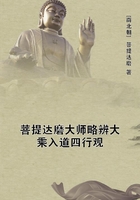But if Jonson had deserted the stage after the publication of his folio and up to the end of the reign of King James, he was far from inactive; for year after year his inexhaustible inventiveness continued to contribute to the masquing and entertainment at court. In "The Golden Age Restored,"Pallas turns from the Iron Age with its attendant evils into statues which sink out of sight; in "Pleasure Reconciled to Virtue," Atlas figures represented as an old man, his shoulders covered with snow, and Comus, "the god of cheer or the belly," is one of the characters, a circumstance which an imaginative boy of ten, named John Milton, was not to forget. "Pan's Anniversary," late in the reign of James, proclaimed that Jonson had not yet forgotten how to write exquisite lyrics, and "The Gipsies Metamorphosed" displayed the old drollery and broad humorous stroke still unimpaired and unmatchable. These, too, and the earlier years of Charles were the days of the Apollo Room of the Devil Tavern where Jonson presided, the absolute monarch of English literary Bohemia. We hear of a room blazoned about with Jonson's own judicious 'Leges Convivales' in letters of gold, of a company made up of the choicest spirits of the time, devotedly attached to their veteran dictator, his reminiscences, opinions, affections, and enmities. And we hear, too, of valorous potations; but in the words of Herrick addressed to his master, Jonson, at the Devil Tavern, as at the Dog, the Triple Tun, and at the Mermaid, "We such clusters had As made us nobly wild, not mad, And yet each verse of thine Outdid the meat, outdid the frolic wine."But the patronage of the court failed in the days of King Charles, though Jonson was not without royal favours; and the old poet returned to the stage, producing, between 1625 and 1633, "The Staple of News," "The New Inn," "The Magnetic Lady," and "The Tale of a Tub," the last doubtless revised from a much earlier comedy. None of these plays met with any marked success, although the scathing generalisation of Dryden that designated them "Jonson's dotages" is unfair to their genuine merits. Thus the idea of an office for the gathering, proper dressing, and promulgation of news (wild flight of the fancy in its time) was an excellent subject for satire on the existing absurdities among the newsmongers; although as much can hardly be said for "The Magnetic Lady," who, in her bounty, draws to her personages of differing humours to reconcile them in the end according to the alternative title, or "Humours Reconciled." These last plays of the old dramatist revert to caricature and the hard lines of allegory; the moralist is more than ever present, the satire degenerates into personal lampoon, especially of his sometime friend, Inigo Jones, who appears unworthily to have used his influence at court against the broken-down old poet. And now disease claimed Jonson, and he was bedridden for months. He had succeeded Middleton in 1628 as Chronologer to the City of London, but lost the post for not fulfilling its duties. King Charles befriended him, and even commissioned him to write still for the entertainment of the court; and he was not without the sustaining hand of noble patrons and devoted friends among the younger poets who were proud to be "sealed of the tribe of Ben."Jonson died, August 6, 1637, and a second folio of his works, which he had been some time gathering, was printed in 1640, bearing in its various parts dates ranging from 1630 to 1642. It included all the plays mentioned in the foregoing paragraphs, excepting "The Case is Altered;" the masques, some fifteen, that date between 1617 and 1630; another collection of lyrics and occasional poetry called "Underwoods, including some further entertainments; a translation of "Horace's Art of Poetry" (also published in a vicesimo quarto in 1640), and certain fragments and ingatherings which the poet would hardly have included himself. These last comprise the fragment (less than seventy lines) of a tragedy called "Mortimer his Fall,"and three acts of a pastoral drama of much beauty and poetic spirit, "The Sad Shepherd." There is also the exceedingly interesting 'English Grammar' "made by Ben Jonson for the benefit of all strangers out of his observation of the English language now spoken and in use," in Latin and English; and 'Timber, or discoveries' "made upon men and matter as they have flowed out of his daily reading, or had their reflux to his peculiar notion of the times." The 'Discoveries', as it is usually called, is a commonplace book such as many literary men have kept, in which their reading was chronicled, passages that took their fancy translated or transcribed, and their passing opinions noted. Many passage of Jonson's 'Discoveries' are literal translations from the authors he chanced to be reading, with the reference, noted or not, as the accident of the moment prescribed. At times he follows the line of Macchiavelli's argument as to the nature and conduct of princes; at others he clarifies his own conception of poetry and poets by recourse to Aristotle. He finds a choice paragraph on eloquence in Seneca the elder and applies it to his own recollection of Bacon's power as an orator; and another on facile and ready genius, and translates it, adapting it to his recollection of his fellow-playwright, Shakespeare. To call such passages -- which Jonson never intended for publication -- plagiarism, is to obscure the significance of words. To disparage his memory by citing them is a preposterous use of scholarship. Jonson's prose, both in his dramas, in the descriptive comments of his masques, and in the 'Discoveries', is characterised by clarity and vigorous directness, nor is it wanting in a fine sense of form or in the subtler graces of diction.
When Jonson died there was a project for a handsome monument to his memory.
But the Civil War was at hand, and the project failed. A memorial, not insufficient, was carved on the stone covering his grave in one of the aisles of Westminster Abbey:
"O rare Ben Jonson."
FELIX E. SCHELLING.
THE COLLEGE, PHILADELPHIA, U.S.A.
The following is a complete list of his published works: --DRAMAS. -- Every Man in his Humour, 4to, 1601; The Case is Altered, 4to, 1609; Every Man out of his Humour, 4to, 1600; Cynthia's Revels, 4to, 1601;Poetaster, 4to, 1602; Sejanus, 4to, 1605; Eastward Ho (with Chapman and Marston), 4to, 1605; Volpone, 4to, 1607; Epicoene, or the Silent Woman, 4to, 1609 (?), fol., 1616; The Alchemist, 4to, 1612; Catiline, his Conspiracy, 4to, 1611; Bartholomew Fayre, 4to, 1614 (?), fol., 1631; The Divell is an Asse, fol., 1631; The Staple of Newes, fol., 1631; The New Sun, 8vo, 1631, fol., 1692; The Magnetic Lady, or Humours Reconcild, fol., 1640; A Tale of a Tub, fol., 1640; The Sad Shepherd, or a Tale of Robin Hood, fol., 1641; Mortimer his Fall (fragment), fol., 1640.
To Jonson have also been attributed additions to Kyd's Jeronymo, and collaboration in The Widow with Fletcher and Middleton, and in the Bloody Brother with Fletcher.
POEMS. -- Epigrams, The Forrest, Underwoods, published in fols., 1616, 1640; Selections: Execration against Vulcan, and Epigrams, 1640; G. Hor.
Flaccus his art of Poetry, Englished by Ben Jonson, 1640; Leges Convivialis, fol., 1692. Other minor poems first appeared in Gifford's edition of Works.
PROSE. -- Timber, or Discoveries made upon Men and Matter, fol., 1641; The English Grammar, made by Ben Jonson for the benefit of Strangers, fol., 1640.
Masques and Entertainments were published in the early folios.
WORKS. -- Fol., 1616, vol. 2, 1640 (1631-41); fol., 1692, 1716-19, 1729;edited by P. Whalley, 7 vols., 1756; by Gifford (with Memoir), 9 vols., 1816, 1846; re-edited by F. Cunningham, 3 vols., 1871; in 9 vols., 1875;by Barry Cornwall (with Memoir), 1838; by B. Nicholson (Mermaid Series), with Introduction by C. H. Herford, 1893, etc.; Nine Plays, 1904; ed. H. C. Hart (Standard Library), 1906, etc; Plays and Poems, with Introduction by H.
Morley (Universal Library), 1885; Plays (7) and Poems (Newnes), 1905;Poems, with Memoir by H. Bennett (Carlton Classics), 1907; Masques and Entertainments, ed. by H. Morley, 1890.
SELECTIONS. -- J. A. Symonds, with Biographical and Critical Essay, (Canterbury Poets), 1886; Grosart, Brave Translunary Things, 1895; Arber, Jonson Anthology, 1901; Underwoods, Cambridge University Press, 1905;Lyrics (Jonson, Beaumont and Fletcher), the Chap Books, No. 4, 1906; Songs (from Plays, Masques, etc.), with earliest known setting, Eragny Press, 1906.
LIFE. -- See Memoirs affixed to Works; J. A. Symonds (English Worthies), 1886; Notes of Ben Jonson Conversations with Drummond of Hawthornden;Shakespeare Society, 1842; ed. with Introduction and Notes by P. Sidney, 1906; Swinburne, A Study of Ben Jonson, 1889.













